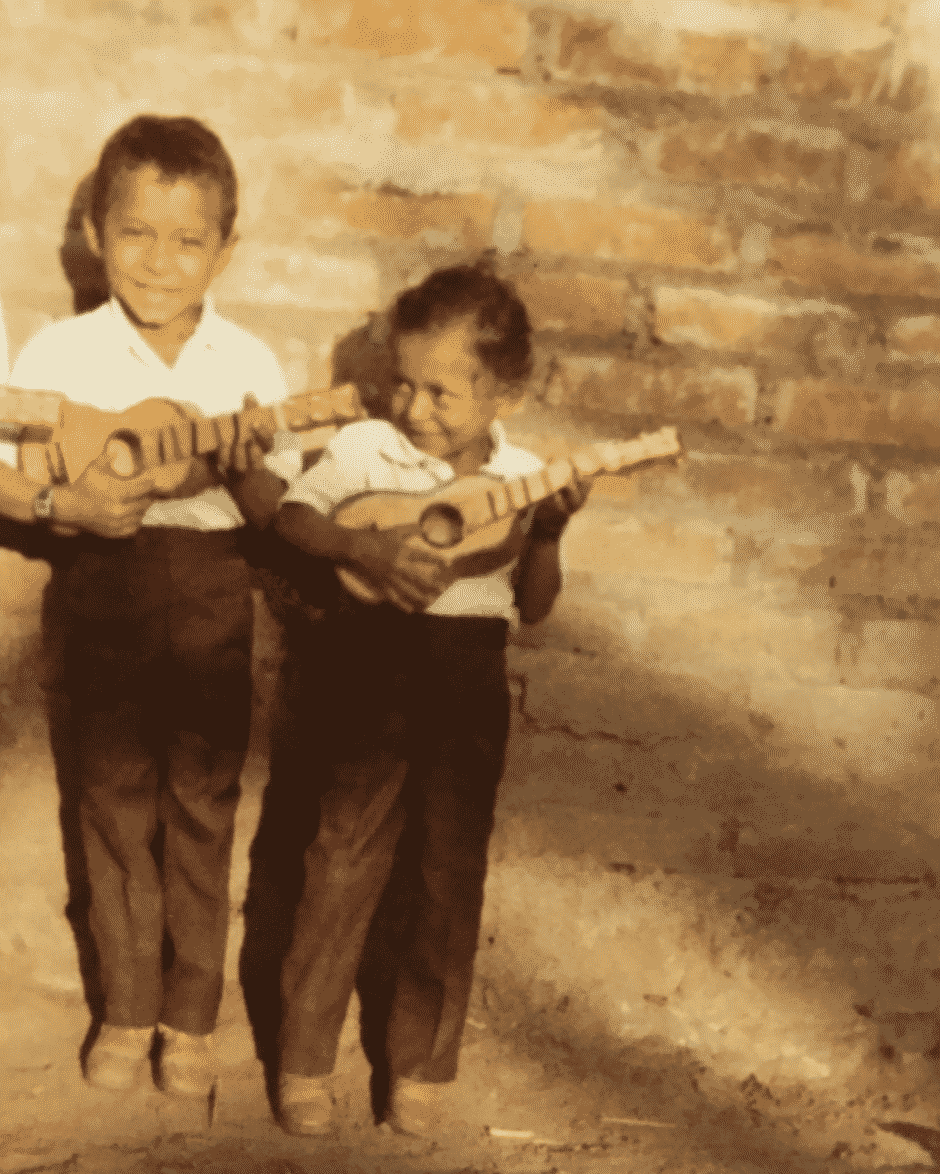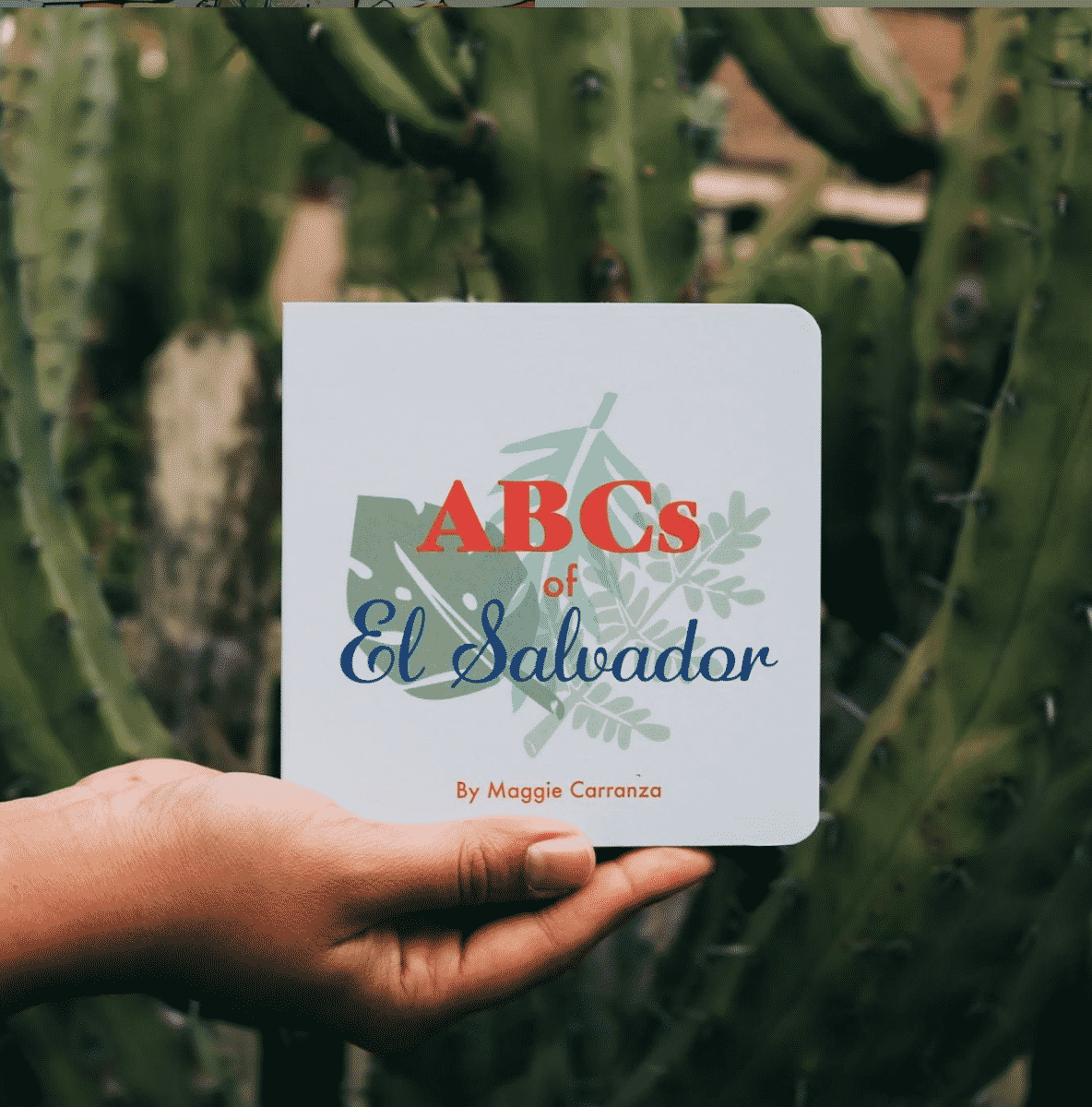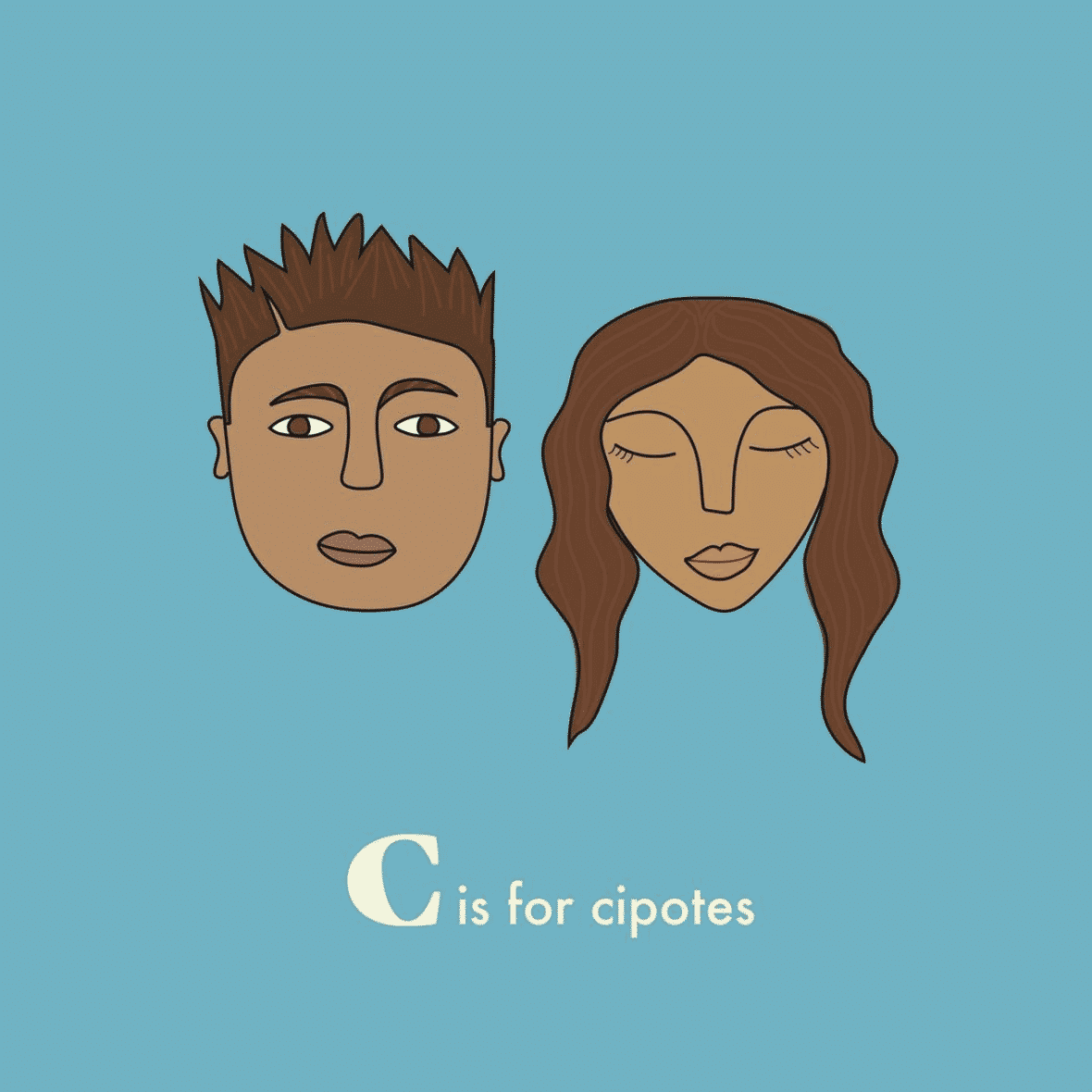This Jefa Googled How To Self-Publish, Now She Has A Top-Selling Salvadoran Kids Book
Maggie Carranza had a bicultural upbringing in Southern California. At school, she spoke English, ate pizza and learned about U.S. history. In her home, she listened to her parents talk in Spanish about their home country, El Salvador, while chewing down pupusas for dinner. Tales about life, food and resistance in the Central American country filled the first-generation Latina with pride. Since those early family meals, Carranza, with motivation from her mom and dad, has wanted to share her traditions and history with the world. At 26, she is realizing those childhood aspirations with ABCs of El Salvador, a picture book shedding light on Salvadoran culture, geography, vernacular and more.
“My parents always encouraged [my sister and me] to be proud of where we come from, share our culture and be open to that of others, and that’s what I’m doing with this book,” Carranza, an event planner and part-time illustrator, tells FIERCE.
Salvadorans make up the third-largest population (tied with Cubans) of Latinos living in the United States. An estimated 2.3 million Salvadorans call the U.S. home, and the demographic is among the fastest-growing Latin American populations in the country.
Despite Salvadorans’ presence and influence on both of the coasts, however, portrayals of the cultural group in mainstream media, entertainment and the arts remain rare.

Attempting to fill the void, independent artists, performers and media makers have been producing creative works that offer much-needed representation, provide a sense of belonging and preserve culture and history. From zines featuring the works of Central American artists who are typically snubbed in the Latino art world to podcasts that keep the Salvadoran diaspora informed of the country’s former and present political and social struggles, Carranza’s picture book is the latest example of how everyday salvadoreños are serving their communities.
The colorful five-by-five hardback makes for an educational children’s book or a conversation-starting coffee-table book.

Inside, the pages touch on numerous cultural products, cuisines, heroes and localities. For instance, S is for Salva Cola, a Salvadoran brand of soft drinks; X is for Xuc, a folk music and dance; and Ó is for Óscar Romero, a bishop who was murdered after speaking out against poverty, social injustice and violence amid the Salvadoran civil war. While Salvadoran culture is popularly celebrated with pupusas – and P is of course for the stuffed corn cakes – Carranza goes beyond hackneyed symbols and shares items about the Central American country that many aren’t as aware of.
“The Salvadoran community, and Latinos in general, has been surprised. They’re like, ‘wow, I can’t believe so much comes out of such a small country,’” she says.
Carranza started the project in June 2019. At first, she just wanted to illustrate some pieces for herself. But a few designs in, she had the idea to complete the alphabet. After showing her work to a few friends and relatives, she was encouraged to turn her art into a picture book.
Without any former experience in books, she turned to Google to answer all her self-publishing questions.

By November of that year, she released the vibrant hardback through her Etsy shop Local Loca and sold out her full stock of 200 copies within the first month. She soon ordered 300 more, and those were also gone six months later.
“It was so wild to me. I don’t have a big following. No one really knows who I am. It just shows that representation matters. People really wanted this,” she says.
Carranza’s community has also been eager to support. Since publishing the book, and its accompanying prints, stickers and tote bags, Salvadoran Instagram has helped boost her products, with artists and influencers purchasing and sharing the ABCs of El Salvador with their followers.
While the community’s embrace was unexpected, communal love and education are what inspired and brought the book to life.

The project developed from a family vision to promote Salvadoran culture and commenced because of their collective efforts. When creating the book, Carranza often called on her parents and relatives in El Salvador to help her come up with items to highlight on its pages. Her family was delighted to participate, and they were moved to tears when they first held the book in their hands.
“I did this in honor of my parents and all they sacrificed for me and my sister to be in this country and get an education,” Carranza says. “This is a fun book to have, but there’s also a meaningful message: embrace your heritage, share it with friends and love those who are different from you.”
Purchase ABCs of El Salvador, or any of its accompanying products, at the Local Loca Etsy shop.




